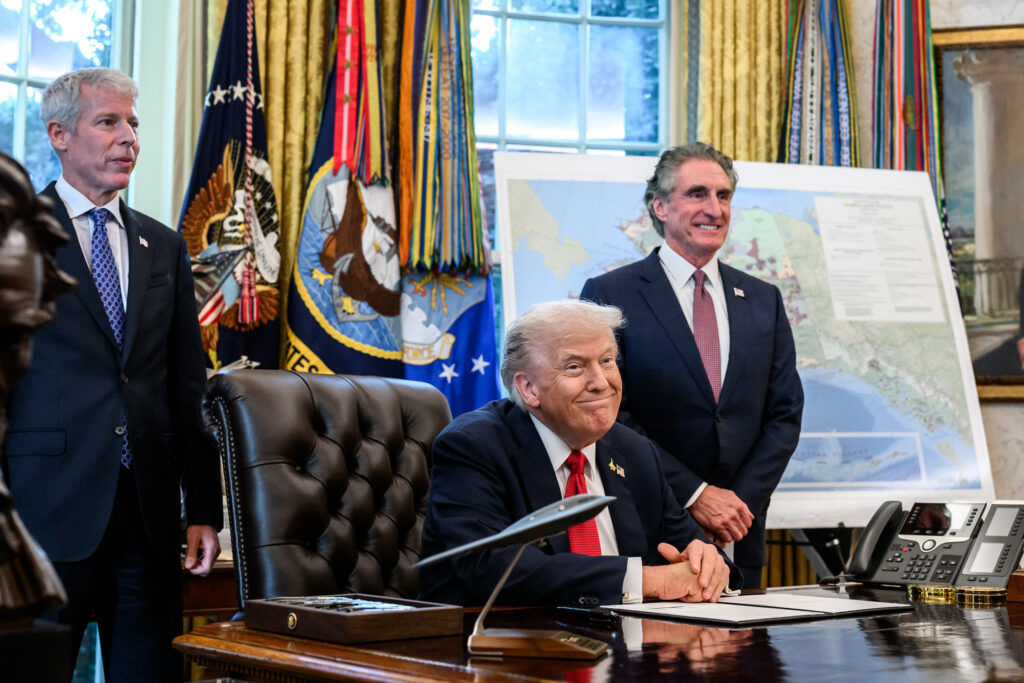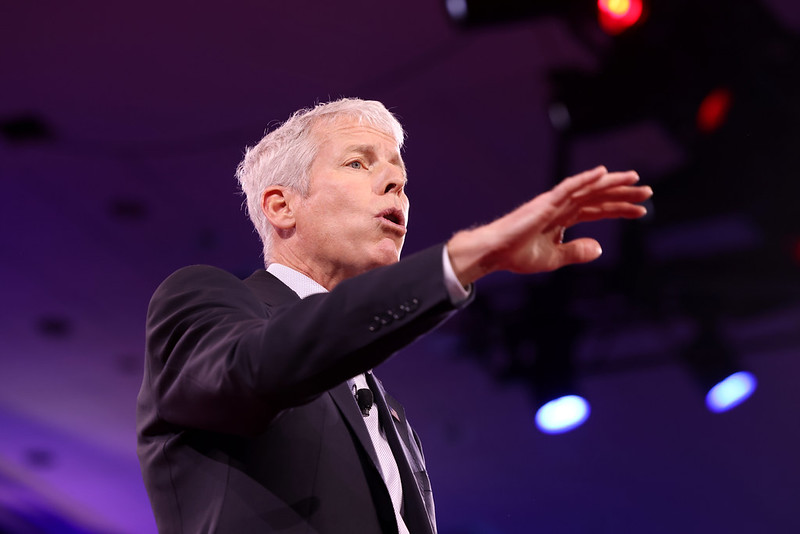Nearly one in three directors of Australia’s largest banks have worked for firms operating in the oil, gas and mining industries, DeSmog research has revealed, prompting concerns about a “vested interest” on the banks’ boards that campaigners fear could delay action to address climate change.
DeSmog’s research analysed director CVs on company profiles, LinkedIn pages, official filings and news clippings to log the past and present work experience of 38 current directors across Australia’s “big four” banks: ANZ, Commonwealth Bank, Westpac, and National Australia Bank (NAB).
The research found that one in five directors had past or current ties to the oil and gas sector, including previous roles at oil and gas giants Shell and ExxonMobil, as well as positions held at oil and gas infrastructure firms and power companies; 18 percent also had ties at one point or another to metals and mining companies, including two of the world’s largest mining companies, Rio Tinto and BHP Billiton.
Several directors once held roles in firms involved in both the oil and gas and mining sectors, with roughly a third having worked across these industries overall.
Several of the directors also had ties to think tanks that have lobbied against climate action, including the Business Council of Australia (BCA), a group of Australia’s top business leaders which supports a federal level net-zero target but has opposed state-level emissions reductions plans and consistently lobbied for policies supporting the fossil fuel industry.
The findings come as the banking industry receives increased scrutiny for financing polluting projects and builds upon previous analysis by DeSmog showing climate-conflicted board members at many of the UK’s top banks and across bank boards worldwide..
Between 2016 and 2020, Australia’s “big four” collectively provided $32.41 billion in financing to the fossil fuel industry. At the same time, the country aims to reduce greenhouse gas emissions to 26–28 percent below 2005 levels by 2030 (a target which some deem “insufficient” and doesn’t go far enough towards helping limiting global warming to 2 degrees Celsius above pre-industrial temperatures).
And, despite many banks releasing bold pledges on climate, the global banking sector has poured over $3.8 trillion into oil, gas, and coal projects since the Paris Agreement was signed at the end of 2015.
Jack Bertolus of Market Forces, a group campaigning to prevent investment in environmentally-damaging projects, said DeSmog’s findings sparked fears about a “toxic influence” and “vested interests” on the banks’ boards that could undermine the transition away from these industries.
“The boards of Australia’s banks should be extremely sensitive to fossil fuel industry cheerleaders holding back action that would allow the bank to minimise its exposure to the massive financial risks climate change poses,” Bertolus said.
Fossil Finance
Australia is widely considered a laggard on climate change. Oil, gas, and coal make up the majority of its energy mix, and fossil fuel players rank among the country’s largest companies.
Tim Buckley, an expert in energy finance at the Institute for Energy Economic and Financial Analysis (IEEFA) said that, given the size and power of Australia’s domestic fossil fuel industry, potential conflicts of interests with the sector were “rife” but urged the banks to take a different approach.
“The fossil fuel industry is very powerful,” Buckley said of Australia, adding that the industry has a “groupthink bias that has been one of the major stumbling blocks to action on climate change.”
Deep Ties
Several bank directors in DeSmog’s analysis stood out for the depth of their affiliations to polluting industries.
Non-executive director at Westpac, Chris Lynch, for instance, was until 2018 the CFO of Rio Tinto, having previously worked for two decades for rival mining company BHP Billiton. Meanwhile fellow Westpac board member Nora Scheinkestel has a long history working in the mining industry, including at North Ltd, Newcrest Mining Ltd, and CRA (which was later acquired by Rio Tinto).
A Westpac spokesperson declined to comment, and instead pointed DeSmog to the banks’ sustainability and climate change policies on its website. In its climate policy statement, the bank states its support for global efforts to reach net-zero in line with the Paris Agreement. A section on thermal coal says the bank’s current portfolio — which makes up a fraction of its investments overall — has been subject to “strict quality requirements.”
Prior to his career in the telecommunications and banking sectors, Australia and New Zealand Banking Group (ANZ) chair Paul O’Sullivan held management positions at Royal Dutch Shell and at U.S.-based petrochemical company, the Colonial Group. In addition, ANZ CEO and executive director Shayne Elliot spent 20 years working within Citigroup, the world’s second largest funder of fossil fuels, which has channelled over $200 billion worth of financing into fossil fuel projects since 2016.
National Australia Bank (NAB) director, Kathryn Fagg, started her career as a petroleum engineer at ExxonMobil and has since worked in senior roles in the high-carbon steel and construction industries. Her fellow NAB director Simon McKeon is a current director at Rio Tinto and advises metal and mining firm, GFG Alliance.
A spokesperson for National Australia Bank told DeSmog that “Climate action is everyone’s job,” and said the bank was involved in a range of initiatives to address climate change while encouraging their customers to play their part.
A representative from Commonwealth Bank told DeSmog the bank was committed to “playing our part in limiting climate change in line with the goals of the Paris Agreement” and said it recruited board members with the expertise and experience to help it realise this transition.
The representative pointed to Commonwealth Bank’s “absolute commitment” to a carbon neutral future, which had driven successful efforts to decrease the bank’s exposure to coal, oil and gas industries in the past financial year.
There is growing international investor pressure for banks to take action on climate change. This includes recent actions by major global investor Blackrock, which earlier in the year delivered a rebuke to the oil and gas industry through a shareholder revolt at US energy giant, Exxon, and former Bank of England governor Mark Carney, who is heading industry efforts to move towards low-carbon investment.
Buckley contrasted this with the situation in Australia. “Australian banks are struggling,” he said, when it comes to tackling the climate crisis, and the country’s “government [is the] laggard of the world.”
Updated 18/08/20: Kathryn Fagg’s position at NAB was corrected from Chair to Director.
Research by Rachel Sherrington, Sabrina Fearon-Melville and Xindi Wei
Subscribe to our newsletter
Stay up to date with DeSmog news and alerts






